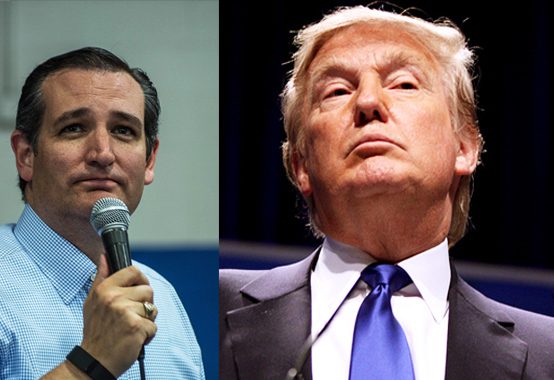The 2016 Republican Race So Far

The Republican field once included as many as 17 candidates. Most of them really had no business running, and many were throwbacks to earlier eras that guaranteed that they would be poor fits with the current electorate. This included no-hopers such as Jim Gilmore and George Pataki as well as yesterday’s men Mike Huckabee and Rick Santorum. Rick Perry could never recover from his last disastrous outing, and Bobby Jindal was weighed down by the mess he had created in Louisiana. And, of course, there was Jeb Bush, the Rip Van Winkle of the Republican Party, who sought to repeat his brother’s 2000 campaign as if nothing had changed in the last decade.
Throughout 2015, new candidates would join the race, and in almost every case I said that the latest entrant had no chance. I wasn’t just trying to be contrarian or playing devil’s advocate when I said these things. The supposedly “strongest field” of Republican candidates in decades was full of no-hopers, has-beens, and also-rans that weren’t going to get close to winning the nomination, and this was fairly obvious from the start. The “top tier” of Walker, Bush, and Rubio was also not nearly so formidable as it was made out to be a year ago, and all of them flopped when they were put to the test. We saw that when Walker’s campaign collapsed when it couldn’t keep pace with the unrealistic expectations that had been created for the governor. We also saw it when Bush wilted the moment he came under any pressure and never recovered. Rubio was overly-hyped, overconfident, and badly unprepared for a presidential campaign. Trump made all their problems worse and made their weaknesses harder to ignore, but he didn’t create any of them. Like many of its members, the “strongest field” looked strong on paper, but that was usually because the weaknesses of these candidates weren’t well-known or were dismissed as minor. Especially for those “top-tier” candidates, one of the biggest weaknesses was being too wedded to Bush-era ideological commitments and to George W. Bush personally. That not only put them at odds with many Republican voters, but it also convinced many more that they were simply out of touch and clinging to discredited or outdated policies.
The three remaining candidates are very different from one another, but one thing they have in common is that they have all to one degree or another flouted some aspect of party and/or movement orthodoxy. Cruz is the most conformist ideologue of the three, but even he has been willing to criticize neoconservatives and other Republicans that have endorsed interventions in Libya and Syria. Most movement conservatives considered Kasich’s candidacy to be dead on arrival because of his support for Medicaid expansion in Ohio, but that was also a sign to some primary voters that Kasich was capable of being independent from his party. Trump obviously doesn’t care about party and movement litmus tests and says more or less whatever occurs to him. I suspect this is why he is consistently judged the candidate best-suited to “telling it like it is” despite his numerous errors, flip-flops, and absurd statements: he doesn’t just repeat the things that a Republican candidate is “supposed” to say. This willingness to break with fellow Republicans on certain issues that make them so hated by many on the right may also help to explain how they have held on this long. The Bush-era throwbacks and retreads failed in no small part because they wouldn’t or couldn’t do the same, but instead kept trying to defend the agenda and legacy of one of the worst presidents of the last century.
Comments